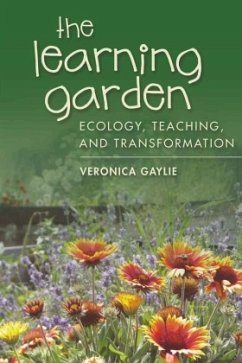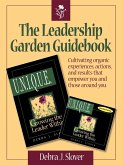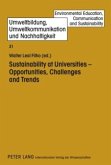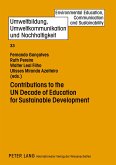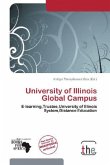This book tells the story of building a campus "learning garden" over a series of cohorts of student teachers and environmental education students. The project began with high ideals, no funding, and a strong desire to do something about the environment: the result was a transformation in attitude toward nature, community and toward the learning process itself. Examining the process through three key metaphors - garden as environment, garden as community, garden as transformation - this book provides a bridge between theory and practice for ecology-centered teaching and learning.
«This is a lovely, important book! 'What is the role of environment and community in teacher education?' Veronica Gaylie's critical question stands traditional teacher education on its head, beautifully demonstrating how important it is for teachers to examine their ethical and professional responsibility to a sustainable future on this planet. And this is not just environmental education separated from issues of justice - the learning garden is a model for how to deepen awareness of our essential interdependence within complex communities of life. Anyone interested in how to bring these questions into the teacher education classroom will love this book!» (Rebecca Martusewicz, Professor, Eastern Michigan University)
«While some teacher-educators promote environmental learning in their courses, Veronica Gaylie is unique in going further. She uses a campus garden as the context for learning how to teach. Her choice of a garden is brilliant. Gardens teach us about change, being patient, asking the right questions, encouraging experimentation, and at the end of the day, reflecting on what we've learned. As such, it is an ideal focus for both classroom instruction and the training of classroom teachers. Teacher education is so much the better for her contribution.» (Tim Grant, Co-editor, 'Green Teacher')
«While some teacher-educators promote environmental learning in their courses, Veronica Gaylie is unique in going further. She uses a campus garden as the context for learning how to teach. Her choice of a garden is brilliant. Gardens teach us about change, being patient, asking the right questions, encouraging experimentation, and at the end of the day, reflecting on what we've learned. As such, it is an ideal focus for both classroom instruction and the training of classroom teachers. Teacher education is so much the better for her contribution.» (Tim Grant, Co-editor, 'Green Teacher')

